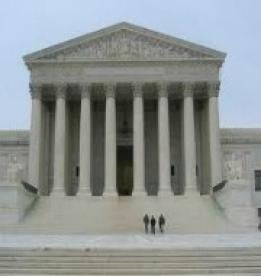Not surprisingly, in its most recent round of “excessive fee” lawsuits under the Employee Retirement Income Security Act (ERISA), the plaintiffs’ bar has begun targeting 403(b) plans sponsored by higher education institutions such as Yale University, the Massachusetts Institute of Technology, New York University, and Duke University.
Cases like Tibble v. Edison International, which brought renewed interest in the fiduciary duty to monitor investments, the Department of Labor (DOL) fee disclosure rules following the wake of the long spate of excessive fee litigation filed against 401(k) plans, and the billions of dollars held in 403(b) plans have set the stage for this new focus on 403(b) plans. The gist of the excessive fee lawsuits is that plan fiduciaries have breached their fiduciary duties by offering high-cost investment options under their plans or by paying for high-cost duplicative or inefficient recordkeeping and administrative services. These alleged fiduciary breaches negatively impact the long term value of plan participants’ retirement accounts.
When the plaintiffs’ bar first focused on 401(k) plans, plan sponsors nationwide found themselves and their plans the targets of newspaper ads warning participants of potential problems with their plans and encouraging them to contact the plaintiff’s attorney listed. Soon afterward, plan sponsors began receiving lengthy form letters from plan participants requesting detailed amounts of plan information, such as legal documents, contracts, fee and expense data, and records of decision-making under the plans—some of which was required to be disclosed under ERISA. This was a nationwide fishing expedition that resulted in class action lawsuits and eventually prompted the DOL to develop its fee disclosure regulations (both those aimed at participants and at service providers). Given that the same plaintiffs’ firm involved in the 401(k) suits is also involved in these groundbreaking 403(b) suits, it should come as no surprise if other higher education institutions find themselves subject to the same tactics. The plaintiffs’ bar is also not discriminating against plans based on size, with recent suits targeting plans both large and small. In the current landscape, it also does not matter if a plan is using well known or lesser known service providers and investment fund families.
Higher education institutions (and any entity that sponsors a 403(b) plan) should be mindful of newspaper ads targeting their plans or any unusual plan document requests under ERISA. As a matter of prudence and caution based on the lessons learned from the 401(k) plan suits, 403(b) plan sponsors should, at a minimum:
-
Ensure they are in compliance with the ERISA fee disclosure rules
-
Follow the rules and procedures set out in the formal plan documents and any governance policies or benefit committee charters
-
Periodically review the performance and fees associated with plan service providers
-
Document their decision-making and any service provider or investment reviews, comparisons or benchmarking efforts
-
Review the adequacy of any indemnification provisions in agreements with service providers and any investment managers or fiduciaries under ERISA Sections 3(16), 3(21) and 3(38)
-
Review the adequacy of fiduciary liability insurance coverages for themselves and of their fiduciaries and service providers




 i
i

